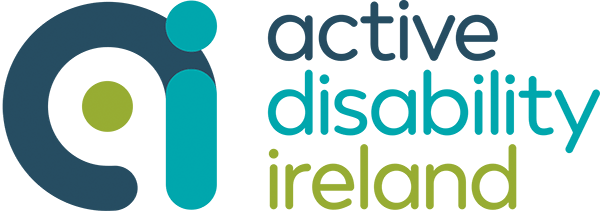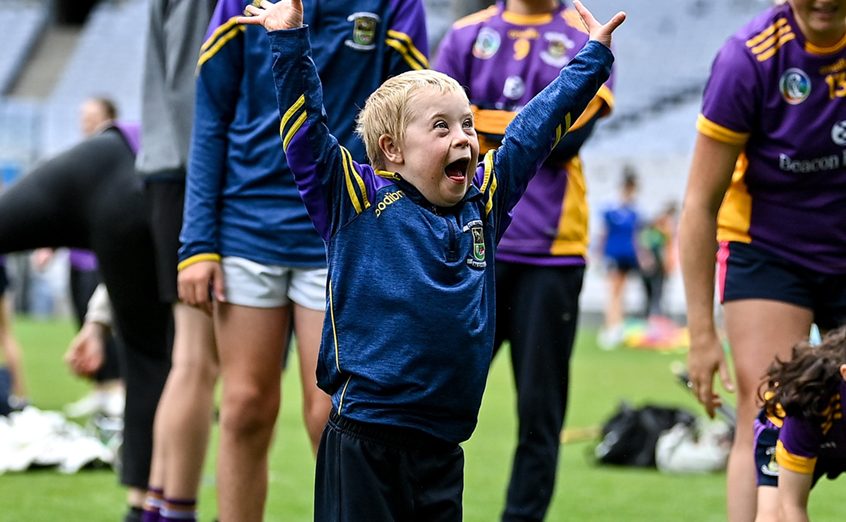As part of my work as a primary school teacher, I recently covered prefixes with my class during an English lesson. The children very quickly realised that the prefix ‘dis’ means ‘not’ or ‘opposite’ of. Happy with my English lesson but not so content with a term I have been associated with for so long, I gave it some thought.
a term I have been associated with for so long, I gave it some thought.
DISability or disABILITY?
A word which has loomed over me since the loss of a limb to bone cancer at the age of eleven. As my world collapsed around me and I realised that many of my sporting dreams lay in tatters, my attention quickly turned to the monstrous battle that lay before me. Cancer is not fun. I was plucked from the comforts and carefree days or rural life in East Kerry and plunged into the darkness of chemotherapy and surgery in Dublin. A place I had never been. I had always assumed that my first visit to the capital would be to be part of the spectacle that is All-Ireland final day. Preferably featuring my beloved Kerry. Indeed I had aspirations to play there myself one day and follow the footsteps of my father John, who won a Minor All- Ireland title with Kerry in 1963 and scored five points in the final against Westmeath. It was not to be. Cold, bleak and sterile hospital rooms took the place of the colourful Croke Park. My destiny was taking an unwelcome diversion.
Disability is word which has closed doors for me and admittedly opened others. In recent times I have come to realise that on a personal level, I am not comfortable or happy with the word and its connotations. The term Disability suggests a lack of ability. The reality is that all of the so called disabled people I know are among the most innovative, adaptable and enabled people you could ever wish to meet. As an amputee, I assess, adapt and overcome obstacles every day of my life. I do not consider myself disabled, in fact I feel I’ve been enabled in many ways by my circumstances and by becoming an amputee. I’ve been enabled to be resilient, adaptable, resourceful and quite accidently, inspirational. I would not change a thing now as I feel becoming an amputee has actually empowered me and made the person I am today. The unwelcome diversion has sent me down a different road but difficult journeys often lead to beautiful destinations.
Recently I spoke with a group of students in UCC and they asked me if I felt it is time that the term Disability or Disabled was replaced. I found it a difficult question to answer. I explained that I do not consider myself to be disabled and I do not allow the fact that I’m an amputee to dictate what I can and cannot do. However, I was very mindful of the fact that when faced with adversity, that was my personal response but it is not how everybody responds in such circumstances. When you face a life changing event like battling cancer or losing a limb, you learn a huge amount about yourself very quickly. I learned that I was a fighter and I was as stubborn as a mule! Bolstered by an amazing network of family and friends I quickly decided that I would not be defined my ‘disability’. Sure it would challenge me BUT I was determined to challenge it also. I was never treated any differently by family and friends, the cotton wool and bubble wrap was kept where it belonged and as a result I didn’t behave any differently. I was allowed to face challenges, overcome them or not and develop resilience in spades, which has stood to me to this day. Resilience is like a muscle, you must work it, feed it and allow it to grow and develop. As a teacher I am aware that children must be allowed to experience difficulties and failure to develop greater levels of resilience. If we intervene to ‘protect’ children too prematurely when they fail or cannot do something, we are in fact denying them a learning experience and in turn denying them the opportunity to become more resilient. I have become resilient out of necessity, I have overcome cancer twice, suffering a below knee amputation initially and an above knee amputation a year later when my cancer returned. Just as life was beginning to return to some form of normality, I might add.
I am very lucky and I can get up each day (put on my leg!) and do most things that others can do. I appreciate that there are those less fortunate and indeed there are varying levels of disability. Some people associate with the term and are more comfortable with it than I am. I fully understand and appreciate that. As a society I feel we are often too quick to pigeon hole and compartmentalise people. We place parameters and restrictions on people all too often without allowing them the space and freedom to decide for themselves what they are capable of. I am constantly striving to challenge peoples’ perception of the term disability and what disability is. Positive media coverage of sporting events such as the Paralympic games and the Invictus games is slowly helping to change how people perceive amputees and others.
Inclusion in sport for people with disabilities has many barriers. I went from playing Gaelic football with Rathmore, soccer with a local team and representing Kerry in athletics to having absolutely nothing in terms of a sporting outlet. As a result, not alone did I lose a limb, I also lost a huge part of my identity. I was lost for many years and felt rudderless and directionless. This is something that has not changed a huge amount in the twenty five years since I lost my leg. There is very little in the way of meaningful sporting opportunities for children and adults with a disability, particularly in rural areas. Appropriate inclusion in sport can benefit the physical and mental health of participants, it can foster a sense of belonging and give people a new sense of purpose.
I tried a number of sports after losing my leg but I always missed the buzz of high intensity team sports. I discovered amputee football in 2011 during an Internet search. I watched some videos on YouTube and I was astounded by the level of skill and the attritional nature of the sport. I later discovered that amputee football had been established in Ireland earlier that year, thanks to the hard work of Simon Baker, Christy McElligott and the FAI. I went to my first session in Dublin in October of that year and it changed my life.
Amputee football has given me the opportunity to express myself as an athlete again. I always felt like an athlete but I could not engage in sport in a meaningful way. The sport has increased my physical wellbeing as well as my confidence and self esteem.
I have been blessed to have seen many parts of the world through the sport. I participated in the amputee World Cup in Mexico in 2014 and more recently at the European Championships in Turkey last October. It is an incredible feeling to pull on an Irish jersey and sing the national anthem and I’m acutely aware that very few people get to experience this.
The Irish Amputee Football association also have a junior academy. This gives young amputees and opportunity to play football in an inclusive environment. You can see these children go in confidence when they play the game.
Amputee football has taken me on an incredible journey and although I am now 36 I’d like to think that I have many more years ahead!
Most recently we have established a domestic league in Ireland. The league is made up of three teams, Shamrock Rovers, Bohemians FC and Cork City FC. This is giving us all the opportunity to play more regularly and the extra game time is paying dividends for the international side. The standard and fitness levels are increasing all the time. Meaningful and appropriate inclusion in sport can do wonders for the people who are facilitated appropriately.
Let’s start a conversation around the term, ‘disability’. Allow people the space and freedom to reach their potential before swooping in and limiting what they can achieve. Do not pity or feel sorry for me or others like me. We are very aware of our limitations but we do our best to accentuate our positives-Ability not disability. As we say in Amputee football, we want people to say WOW not AWW! We want a clap on the back, not a tap on the head!
‘We are all in the gutter but some of us are looking at the stars’ Oscar Wilde.
Thank you for reading, if you have taken something away from this article, please share it!
David


